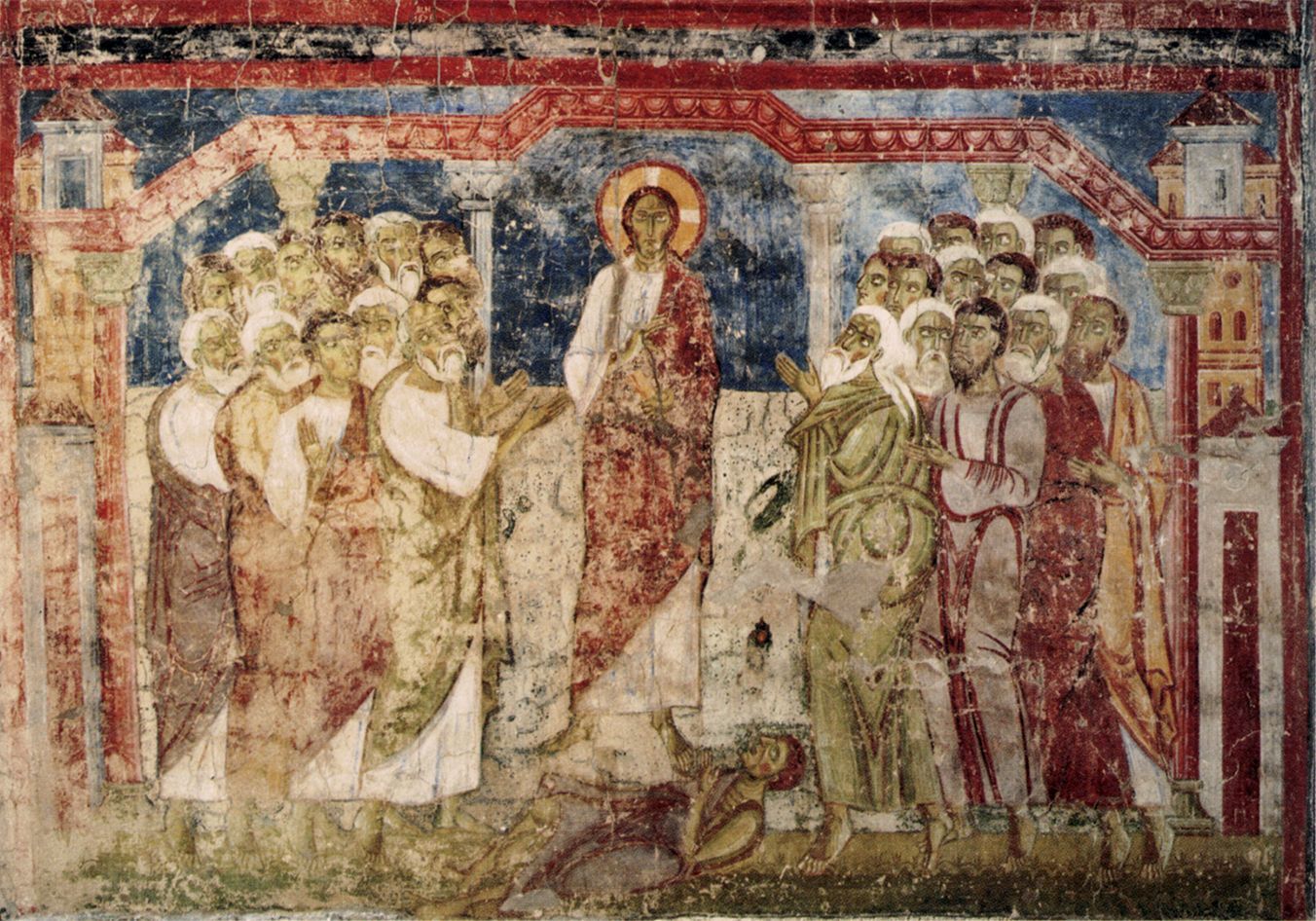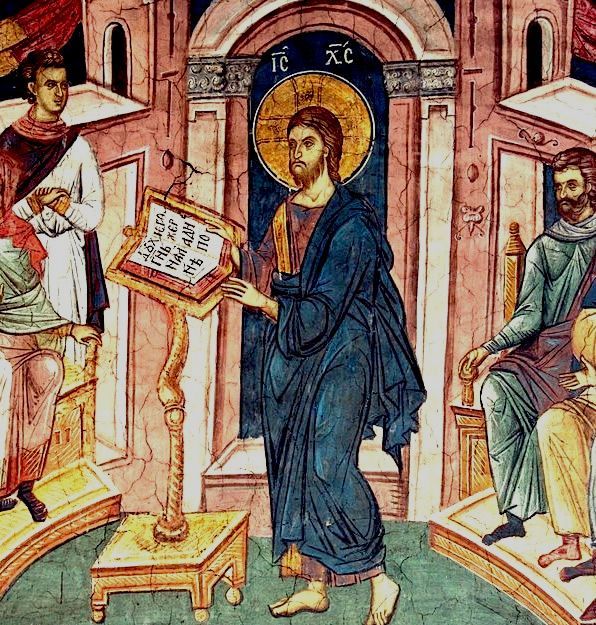Message of Abbot Paul - Monday 4th September 2023
Abbot Paul • September 4, 2023


Today we celebrate the Dedication of the Abbey Church, dedicated as it is to St Michael and All Angels, but in the first place, as every church, to Christ our Lord and Son of God, Saviour of the World. Our Conventual Mass will be that of the Dedication of a Church, together with proper readings and chants. However, as my readers will not have those to hand, I’ll simply say a few words about the Gospel reading for the Feria or ordinary weekday, as found in your Daily Missal or whatever other source you might use.
On Saturday we came to the end of our weekday reading of Matthew, which means we are roughly two thirds of the way through Ordinary Time. Today we begin reading Luke, who will take us right up to the end of the liturgical year and the eve of the Advent cycle of readings. Luke begins with an extensive Infancy Narrative and a Genealogy of Jesus, his Baptism and desert experience of Temptation, so we pick up Luke’s narrative at Chapter 4, verse 16, Jesus in Nazareth, his preaching in the synagogue and rejection by his own townsfolk, (Jn 4: 16-30). Luke, as you know, is an elegant and detailed writer, a synoptic author with a difference, with much material unique to himself and a certain affinity with John.
“Jesus came to Nazara, where he had been brought up, and went into the synagogue on the sabbath day as he usually did. He stood up to read and they handed him the scroll of the prophet Isaiah. Unrolling the scroll he found the place where it is written:
The spirit of the Lord has been given to me,
for he has anointed me.
He has sent me to bring the good news to the poor,
to proclaim liberty to captives
and to the blind new sight,
to set the downtrodden free,
to proclaim the Lord’s year of favour.
He then rolled up the scroll, gave it back to the assistant and sat down. And all eyes in the synagogue were fixed on him.”
Jesus was no stranger to Nazareth: it was there that he was brought up in the family home of Mary and Joseph, but he’s been away and come back. Most of us have had that experience: you come back a stranger to your own people, so Jesus is treated as a guest and invited to read. The scroll is given to Jesus, but he looks for what he wishes to read to the people crowding the synagogue. It’s a specific Messianic text, his mission statement. The people are aware that something important and unexpected is happening before their very eyes.
“Then he began to speak to them, ‘This text is being fulfilled today even as you listen.’ And he won the approval of all, and they were astonished by the gracious words that came from his lips. They said, ‘This is Joseph’s son, surely?’
But he replied, ‘No doubt you will quote me the saying, “Physician, heal yourself” and tell me, “We have heard all that happened in Capernaum, do the same here in your own countryside.”’
And he went on, ‘I tell you solemnly, no prophet is ever accepted in his own country.
‘There were many widows in Israel, I can assure you, in Elijah’s day, when heaven remained shut for three years and six months and a great famine raged throughout the land, but Elijah was not sent to any one of these: he was sent to a widow at Zarephath, a Sidonian town. And in the prophet Elisha’s time there were many lepers in Israel, but none of these was cured, except the Syrian, Naaman.’
When they heard this everyone in the synagogue was enraged. They sprang to their feet and hustled him out of the town; and they took him up to the brow of the hill their town was built on, intending to throw him down the cliff, but he slipped through the crowd and walked away.”
Everything appears to be going well: he wins their approval. His words are grace-filled and the prophecy of Isaiah appears to be taking place in the man they know so well, “Joseph’s son.” Curiously, Jesus then appears to pick a fight with them. Had they complained that he had moved to Capernaum and set up his centre of activity there? Did they feel rejected? Had they hoped to see the miracles he had become already famous for take place in Nazareth too? He certainly provoked them with his words and they turn against him. It appears they are prepared to murder him. The situation turns sour, but he manages to escape by slipping through the crowd. It must have been quite a scene. Crowds can turn nasty and ultimately his passion will prove this still further. So, from the very first day of his mission, and in Nazareth, his passion begins. Mission and passion are inseparable.









